If books were meals, some of them would be the hearty filling kind, others, lighter fare. Here’s a book that’s really filling—the kind of novel you can chew over long after you’re done reading it—and some books that are lighter fare but are bound to amuse your bouche. Want to win a copy of one of these books? To enter to win, comment below by answering the question: Which of these books do you want to read and why?
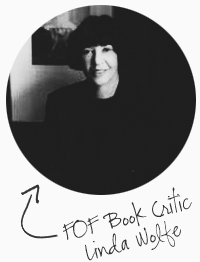
FOF award-winning author, Linda Wolfe, has published eleven books and has contributed to numerous publications including New York Magazine, The New York Times, and served the board of the National Book Critics Circle for many years.
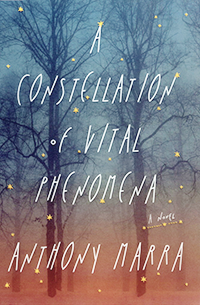
A Constellation of Vital Phenomena
by Anthony Marra
Hogarth Press (Random House).
A Constellation of Vital Phenomena—the title comes from the definition of life in a Russian medical textbook—was awarded the very first National Book Critics Circle’s prestigious John Leonard prize. It’s about Chechnya, and it’s an amazing novel, particularly given that its young author had never been to Chechnya. Many writing teachers tell their students, “Write what you know.” Marra believes, “Write what you want to know.” Doing intensive research, he came to know and understand the country, its history, and its people in great depth, and has produced what is decidedly the most brilliant and compelling work of all the many novels I read during our finally departed wretched winter.
Constellation tells the story of steely young Sonja, a Russian surgeon living in Chechnya who, with a mere couple of nurses, virtually no proper medical supplies, and no other doctors to assist her, decides for personal reasons to keep a Chechnyan hospital open and working throughout the ravages of war. She treats people whose limbs have been blown off by landmines, torture victims whose fingers have been severed at the joints, a whole panoply of sufferers from the inhumane harms war inflicts on civilians as well as soldiers. Sonja is brusque, sharp tongued. “Caring for the dying overwhelmed her,” Marra writes. “She couldn’t be expected to care for the living as well.”
Yet when Akhmed, “the most incompetent doctor in Chechnya,” arrives at the hospital one day with a little girl in tow and asks Sonja to shelter the child because her mother is dead, her father has been taken away by the Russian security forces, and the girl herself is being hunted, Sonja lets herself be persuaded to hide her.

Sonja and Akhmed will fall in love. The little girl will eventually be rescued. But I needn’t issue a Spoiler’s Alert; the way the love affair plays out, and the reasons Sonja agrees to save the girl are the meat of this story, and the hows and whys of what happens will keep you turning the pages as you meet character after character whose lives intertwine with those of Sonja and Akhmed. The style can sometimes be annoying; Marra, a young writer, employs the post-modern literary device so in vogue with many of today’s  young writers: jumping backward and forward in time. But despite this, the story, as if resisting trendiness, marches straightforwardly ahead. And despite the grimness of the setting, the book is not in itself grim. Rather, it’s a paean to the human ability to triumph over tragedy, a tribute to the imperishability of love and compassion in a world bent on demolishing these. Plus, there’s some of the most beguiling language on the scene today. Just for a tidbit, here’s the child, Havaa, on her father: “Her father was the face of her morning and night, he was everything, so saturating Havaa’s world that she could no more describe him than she could the air.”
young writers: jumping backward and forward in time. But despite this, the story, as if resisting trendiness, marches straightforwardly ahead. And despite the grimness of the setting, the book is not in itself grim. Rather, it’s a paean to the human ability to triumph over tragedy, a tribute to the imperishability of love and compassion in a world bent on demolishing these. Plus, there’s some of the most beguiling language on the scene today. Just for a tidbit, here’s the child, Havaa, on her father: “Her father was the face of her morning and night, he was everything, so saturating Havaa’s world that she could no more describe him than she could the air.”
Not bad, huh? And there’s lots more that’s even better.
Lighter Fare
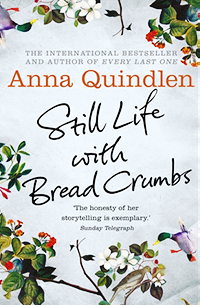
Still Life With Breadcrumbs
by Anna Quindlen
Random House. 252 pp.
Quindlen memorably wrote numerous immensely witty and keenly observant columns, many of them about women’s concerns, for the New York Times in the 1980s and early ‘90s. In the mid-nineties she retreated to a countrified life, wrote journalistic pieces infrequently, and began writing novels, serious novels about contemporary issues like marital abuse and assisted suicide. But the novels, excellent as they were, didn’t have the sophisticated humor of her columns. They were a bit too sober-minded. With Still Life with Breadcrumbs, Quindlen’s voice feels back to that of those early columns—witty, sophisticated, and light-hearted—and that observant eye of hers doesn’t miss a trick when it comes to that great women’s concern: aging.
Breadcrumbs is about Rebecca Winter, a photographer now in her sixties, who as a young woman shot photos about the impoverished life of housewives that became icons of the burgeoning 1970s women’s movement. Reproduced on T-shirts and posters, the pictures made Rebecca not just famous but rich. Now, however, she is producing very little new work, bringing in very little money, and seeing what she has put by dwindling as living expenses keep rising. So broke she fears she hasn’t enough money to keep maintaining her big apartment on New York’s Upper West Side, she decides to rent out the apartment for a high price and spend a year in a cheap rundown cottage in upstate New York. Her life will be changed by the experience.
The tale has little suspense. We know from the moment brawny roofer Jim Bates comes over to rescue a fearful Rebecca from the noisy racooon living in her attic that they will fall in love. But, as in Constellation, 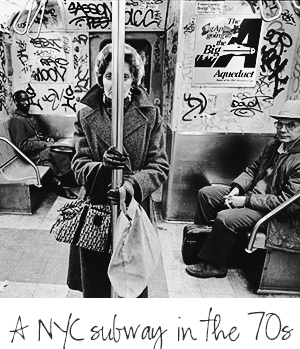 it’s the path to their union that counts—that and the wit with which Quindlen, turning a wicked eye on Rebecca’s past life in the big city, skewers New York sophisticates. One of my favorite such observations: “When she had been young, going to art school,” Quindlen, in the voice of Rebecca, muses, “the subway was dirty and dangerous, men masturbating and muttering to themselves behind pillars… Now the subway was cleaner and less frightening and more people seemed to use it, at least if you judged by those who rhapsodized about how practical it was at parties that belied the rhapsodies because the street outside was choked with black cars, their drivers standing at the curb.”
it’s the path to their union that counts—that and the wit with which Quindlen, turning a wicked eye on Rebecca’s past life in the big city, skewers New York sophisticates. One of my favorite such observations: “When she had been young, going to art school,” Quindlen, in the voice of Rebecca, muses, “the subway was dirty and dangerous, men masturbating and muttering to themselves behind pillars… Now the subway was cleaner and less frightening and more people seemed to use it, at least if you judged by those who rhapsodized about how practical it was at parties that belied the rhapsodies because the street outside was choked with black cars, their drivers standing at the curb.”
There’s a lot more like this, as Rebecca comes to realize that city life is something she’s outgrown. “Or maybe it outgrew her. Everyone was so young. All the skirts were so short. All the heels were so high. All the eyes were so hungry, so wanting.”
Is the novel autobiographical? Like Quindlen, Rebecca decides to give up New York, with its glamorous but competitive hungry atmosphere, and embark upon countrified life in earnest. Throwing in her lot not just with her roofer, but with neighbors she once derided as mere country bumpkins, she finds herself able to get artistic work going again and happily becomes a bit of a country bumpkin herself.
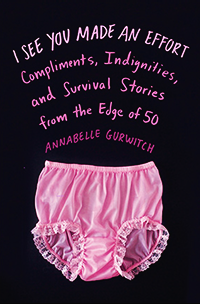
I See You Made An Effort: Compliments, Indignities, and Survival From The Edge of 50
by Annabelle Gurwitch
Blue Rider Press.
If ever there was a book written just for us FabOverFifty-ers, this one is it. Actress and comedian Gurwitch is sparklingly funny (and sometimes mordantly moving) in this book of reflections on reaching her dreaded fifties.
What to wear? Gurwitch says, “I’m aging out of my wardrobe. [My] skirts are too short. [My] legs are still good, but the folds of skin at the knee should not be seen, unless in colored tights, but even then, colored tights just don’t seem age-appropriate. Many of my dresses are just too flouncy, ruffles circling the face are too Humpty Dumpty, flared skirts too flirty, tight clothing looks lumpy and anything blousy seems to emphasize my lack of a waist. Is this the moment I head into the Eileen Fisher years?”
On working in an office with younger colleagues: “I am easily identifiable as the oldest of the women I share an office with. I’m, the only one without tattoos, ironic eyeliner, fluid sexual preferences and a Pinterest account.”
And here she is on online dating: “My fifty-one-year-old friend Denise was just matched with two people by one of the most popular fee-based sites: her brother and a homeless guy who goes by the name Bling-Bling.”
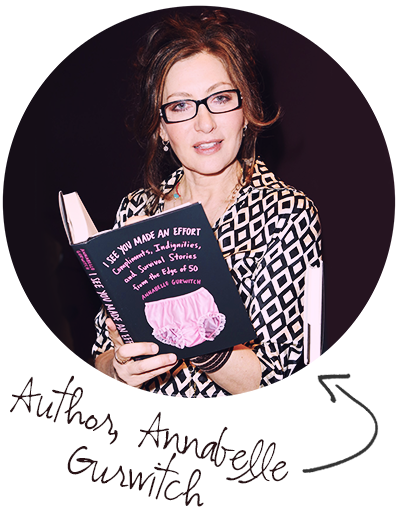
One can imagine Gurwitch doing the book as stand-up. She’s forever delivering punch lines, even when she’s in dire straits. In a chapter lamenting being in the “sandwich generation,” having to care for her family at home in L.A. and to fly periodically to Florida to assist her aging parents, she is provoked by a device given to her mother after a mastectomy. It’s a bulb that will “milk” the bloody discharge from the incision, but which has to be pinned inside her mother’s blouses while she heals. Gurwitch doesn’t have any safety pins with her. “How is it possible that we can collect energy from the sun through photovoltaic panels,” she fulminates, “but we can’t collect blood except with a jerry-rigged contraption that includes safety pins?”
Since the author is just arriving at her milestone fiftieth decade, and most of us who frequent FabOverFifty.com have already passed that mark, some of her observations may seem old hat. But you’ll smile your way through Effort even if you have already worried about the things she’s just begun to worry about, and have already learned that you can be fabulous even though fifty or more. Gurwitch isn’t yet sure she can be fabulous. Even though of course she absolutely is. And so is I See You Made the Effort.
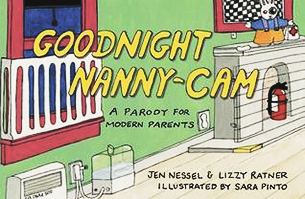
Goodnight Nanny-Cam: A Parody for Modern Parents
by Jen Nessel & Lizzy Ratner
Plume (Penguin).
This romp of a book not only made me laugh but laugh out loud. Like 2011’s best selling Go the Fuck to Sleep, Nanny-Cam is a parody of that classic bedtime book for toddlers, Goodnight Moon. But this book satirizes not the ordeal of getting a toddler to sleep, but the way today’s super conscientious parents are raising their babies: green, bilingual, and on the fast track for nursery school. Their children’s cereal is organic. Their teething rings are made of beeswax maple, their tushy-wipes of recycled non-perfumed paper, their blocks of sustainable-wood. They even have toys that don’t have in them a word I had to Google: phthalate. (Oh My God, if I hadn’t read this book I might have bought a toy with this possibly damaging chemical in it for one of my grandchildren.)
“Goodnight French flash cards,” says the adorable monkey-tailed toddler in the book. “Good night baby monitor. And the nanny-cam… Goodnight wipes warmer and yoga mat, defibrillator and sun hat… Goodnight alpha parents everywhere.”
The text is delightful and the illustrations enchanting. Goodnight Nanny-Cam is a perfect gift for anyone you know who is about to have a baby, or already has one. And for alpha parents everywhere.
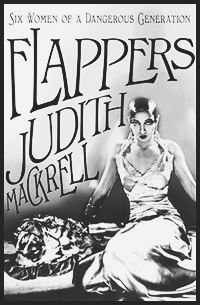
Flappers: Six Women of A Dangerous Generation
by Judith Mackrell
Sarah Crichton Books, FSG.
And we think we invented Women’s Lib! Talented, flamboyant, and daring, the iconoclastic 1920s women whose lives Mackrell explores in this engaging if somewhat superficial book were forerunners of some of the social changes that would eventually sweep through all of society. Not that they were particularly admirable. Mackrell’s subjects—Tallulah Bankhead, Josephine Baker, Zelda Fitzgerald, Diana Cooper, Nancy Cunard and Tamara de Lempicka—were all supremely narcissistic. They burned their candles at both ends, partied as if the world was about to end (which in a way it was, once the crash came roaring in to end the Roaring Twenties), drank themselves silly, had so many sexual partners they sometimes lost count, and were fierce and dedicated self-promoters. Most of them ended up shattered and burnt out. But before they self-destructed, they had a lot of good times and their shenanigans—jumping into fountains, baring their butts, dolling up in shocking fashions—are fun to read about. So are their sexual liaisons. Josephine Baker dallied with the likes of Le Corbusier and Georges Simenon, Nancy Cunard hung out with Ezra Pound and Aldous Huxley, and Tallulah was taken with aristocrats like Baron Napier “Naps” Alington and the poseur Count Anthony de Bosdari.
But Mackrell goes overboard in some of her generalizations. Her subjects, she tells us, “belonged to a dissident, often brilliantly wayward generation of women. Even now their aspirations and battles have a resonance for us, and even now they hold up a gold standard against which our own vision and nerve can be judged.”
Really? The suicidal Zelda as a gold standard? The alcoholic and paranoid Nancy Cunard?
To enter to win,
comment below by answering the question:
Which of these books do you want to read and why?
1 FOF will win. (See official rules, here.) Contest closes May 8, 2014 at midnight E.S.T. Contest limited to residents of the continental U.S.

0 Responses to “{Book Critic & Giveaway} If Books Were Meals…”
Tracey says:
All the books sound fabulous but I would start with ‘Still Life with Breadcrumbs’
AJB says:
Flappers
deborahf2 says:
They all sound compelling, but would especially like to read “A Constellation of Vital Phenomena”..always fascinated by male authors who accurately capture female characters…
Bibliophile says:
I wish I had the attention span for “A Constellation of Vital Phenomena,” which sounds fascinating from Linda’s eloquent, captivating description. But after getting the kids to bed, the apt satire of “Goodnight Nanny Cam” would probably be more my speed.
Mary Jo says:
Can’t wait to read Still Life with Breadcrumbs – I’ve always been a fan of Anna Quindlen. All look like good choices.
Genie Ellsworth says:
My mother was a REAL flapper, so “Flappers” it is! The first coed cheerleader at the University of South Carolina, she learned the Charleston in the real Charleston, danced it like a pro, moved to New York just before the Depression, and had such a good time she convinced me to move there myself in the early ’60’s.
When her brother married a girl from Mobile, Alabama, they found out her family was great friends with Senator Bankhead, et. al., and I grew up hearing some astonishing tales about Tallulah. Here’s hoping!
Beth says:
‘Still Life with Breadcrumbs’ – I do love Anna Quindlen! These are such interesting choices, I hope my book club chooses one of them. Thanks for the suggestions!
Linda F. says:
I See You Made An Effort by Annabelle Gurwitch would be a wonderfful 49th birthday present for my daughter. Maybe it would help her to understand me better. She is already fabulous.
S.C. Leonard says:
Love these book reviews! I always find something I want to buy and, natch, to read! Chechnya. Nanny Cams. Tallulah. What a combination.
REBECCA STEPHEN says:
Flappers: six women of a dangerous generation. I have always loved reading about the 20’s during my grandmothers time. It must have been a wild and scary time, the depression, the Mob, women cutting their hair and wearing shorter dresses. I would enjoy reading this book very much.